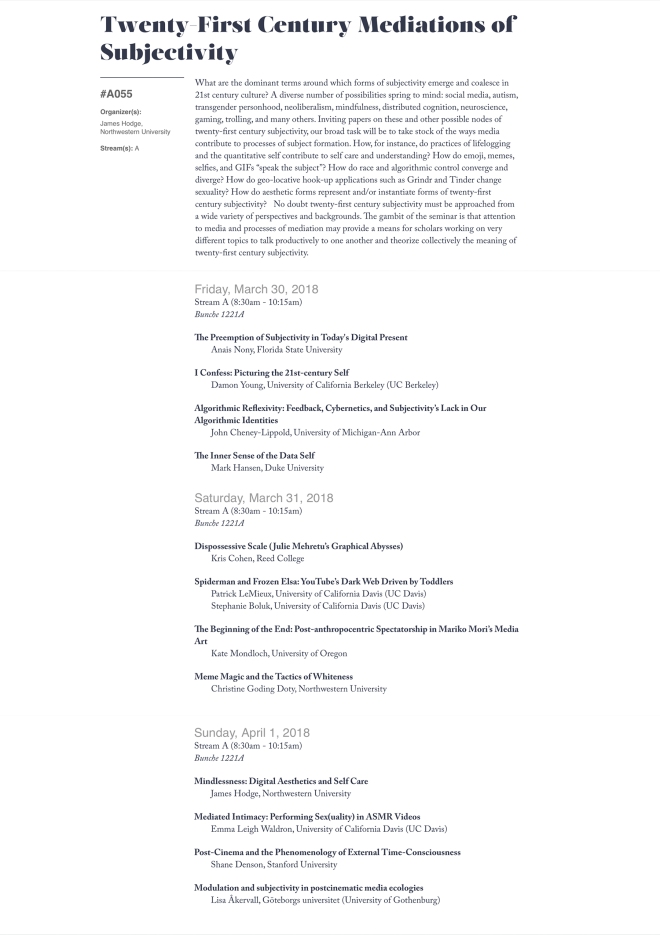
At this year’s conference of the American Comparative Literature Association, taking place March 29 – April 1, 2018 in Los Angeles, I will be participating in a great seminar/panel stream on “Twenty-First Century Mediations of Subjectivity,” organized by Jim Hodge of Northwestern University.
I’m looking forward to all of the talks, on such a rich set of topics. Here is the abstract for my talk:
Post-Cinema and the Phenomenology of External Time-Consciousness
Shane Denson
Something about the temporality of media has changed, and with it the relation of media to the temporality of subjective experience. In Technics and Time, Bernard Stiegler famously argued for just such a change, which he located in the advent of “tertiary memories” – externalized, reproducible experiences stored by industrial media objects. Using the term “cinema” to designate not only a specific apparatus but also the broad media regime or epoch instituted by recording technologies from photography and phonography to television and digital technologies, Stiegler identifies a threat to our subjective experience – exacerbated with the advent of live media in “the televisual epoch of cinema” – whereby media colonize consciousness by pre-formatting our immediate awareness (primary retention) with the images of tertiary retention. One thing Stiegler’s argument fails to account for, however, is the emergence of a protentional dimension that distinguishes computational media as decidedly “post-cinematic.” No longer simply memorial or mnemotechnical, post-cinema’s protentional images are generated on the fly according to compression algorithms rather than photochemical processes, thus disrupting the stability of tertiary memory while producing an external homologue to internal time-consciousness. This paper seeks to trace the impact of post-cinematic temporality on the production of subjective experience.